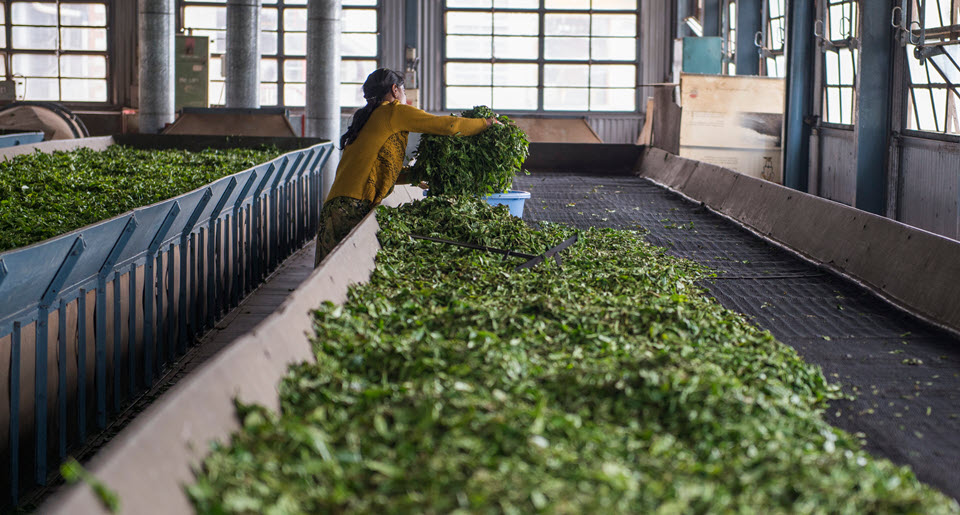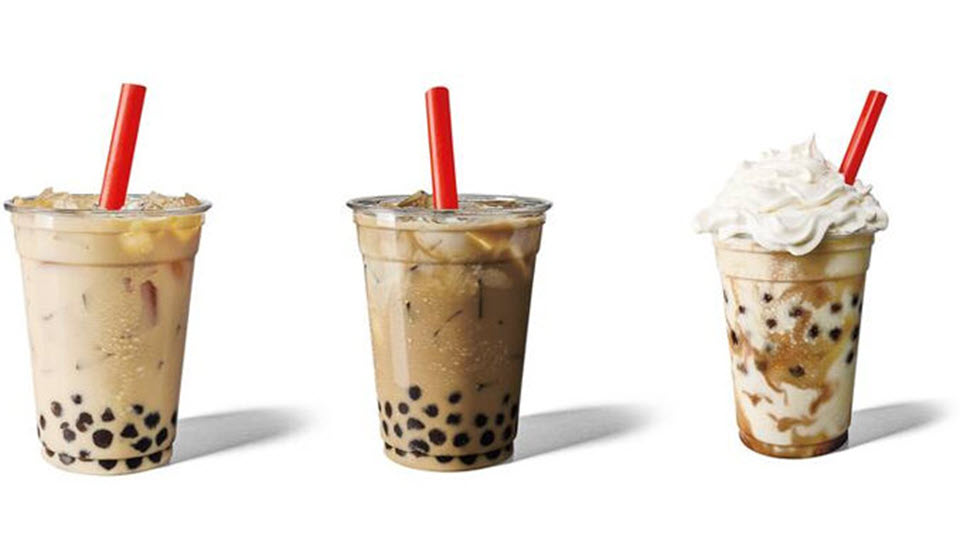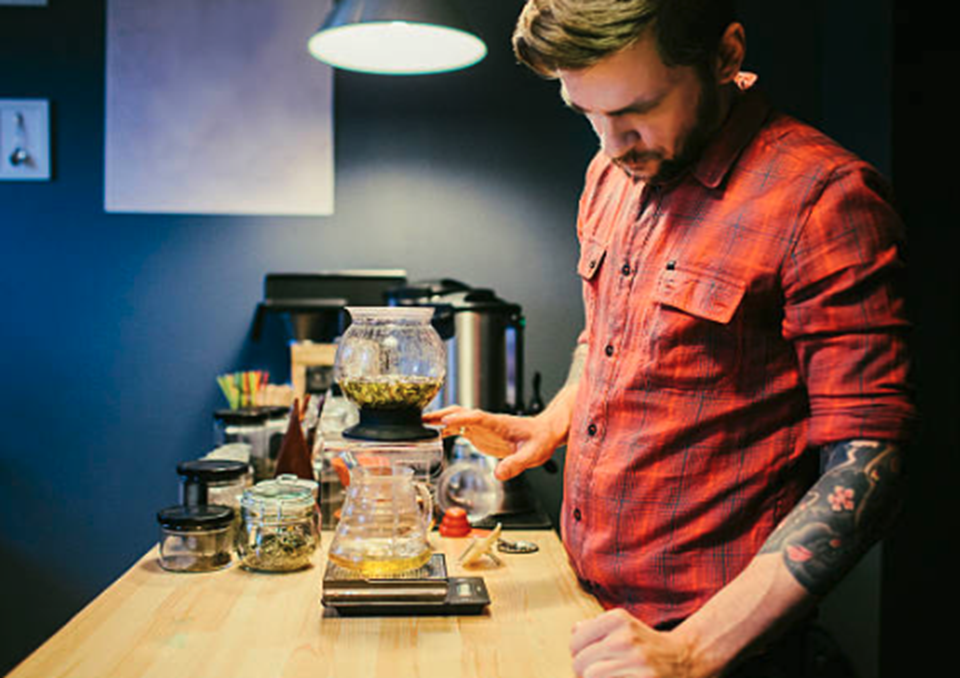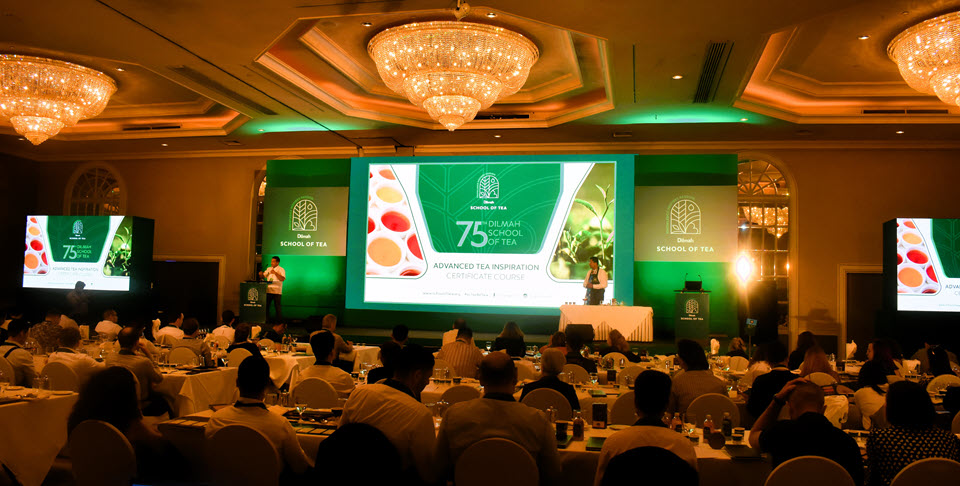
Listen to Episode 122
Tea News for the week ending June 23
| Consultants BDO India has six months to complete an extensive report on cultivation and processing costs
| US Fast-food Outlets Have Yet to Rollout Boba Nationally
| The European Speciality Tea Association Offers Tea Barista Foundation Certificates to Coffee Shop Staff
Hear the Headlines
PLUS
Tea Biz travels to Sri Lanka to attend the Dilmah School of Tea hosted by Dilmah Ceylon Tea Company CEO Dilhan C. Fernando. The school teaches that knowledge inspires passion. In this interview, Fernando shares his passion for modernizing the tea experience for consumers ordering tea at restaurants, hotels, and resorts.
Listen to the Interview
India Tea Board to Review Tea Price-Sharing Formula
By Dan Bolton
Raw leaf price sharing, implemented in 2004 and revised in 2013, protects tea smallholders and ensures that bought leaf factories (BLF) retain enough of the final auction price to operate profitably.
This week the Tea Board of India hired consulting firm BDO India to review the current split, which varies by region—smallholders in the West Bengal tea belt currently receive 58%, and BLFs received 42% of the average auction price paid for tea. In Assam, the formula is 60% for STGs (small tea growers) and 40% for the factories that process smallholder tea.
Bijoy Gopal Chakraborty, President of CISTA (Confederation of Indian Small Tea Growers Association), has pressed for a revision of the formula for several years.
Chakraborty told the Hindu Businessline, “The cost of production has changed substantially in the last ten years.” The share paid STGs should increase to reflect these costs, he said.
In 2007 the Center for Education and Communication calculated the cost of green leaf cultivation ranged from Rs. 6.29 in Assam and 6.27 in West Bengal to Rs. 5.33 in Tamil Nadu, with a high of Rs. 7.62 rupees per kilo in Himachal Pradesh.
The data for this analysis was collected from the United Forum of Small Tea Growers’ Associations. The 33-page CEC study breaks out the cost of cultivation (STG) and processing (BLF)—the cost of production is the total. In North India at that time, CEC calculated the cost of production at $1.62 per kilo. In South India, the cost was calculated at $1.48 per kilo. The CEC calculations assume a 2000 kilograms per acre yield, at least 12,000 kilos harvested.
Since that time cost of labor, fuel, and fertilizer has soared. In 2007, for example, the price of urea, the world’s most common nitrogen fertilizer, was $280 per ton. On June 1, the average urea price was $623 per ton, costing $.68 per pound of nitrogen. The tea industry is India’s largest private-sector employer, estimated at 10 million workers.
Productivity varies significantly. The output per person in Assam is estimated at 2.2 kilos per worker per day. In Kerala, productivity averages six kilos per workday.
Last October, Nalin Khemani, the chairman of Bharatiya Cha Parishad (BCP), told the BCP Annual General Assembly that the cost of labor per hectare in running a tea garden in Assam is Rs 787.5 as against Rs 341.8 in the southern state. BCP is an association of tea planters and factory owners.
“’The cost to the company (composite value of wage and social responsibility) of a man-day beyond a certain point is an economic impossibility for the industry. Over 60% of the total budget of a tea company is allocated to wages,” said Khemani.
Smallholders have much lower fixed costs. The Tea Farming Project in 2018 reported smallholders could turn a profit in the fourth year after planting based on sales of 3,7000 kilos of the raw leaf at Rs. 17 per kilo to earn Rs. 22900 profit (about $280 in US dollars). Researchers used India’s price-sharing formula to determine the Rs. 17 per kilo rate.
The BDO contract gives the consultancy six months from June 2023 to conduct field visits to gather relevant data on the cost of doing business from farmers in the major tea-producing regions. Growers in Himachal Pradesh, Karnataka, Uttarakhand, Bihar, Odisha, Arunachal Pradesh, Meghalaya, Mizoram, Nagaland, and Sikkim will be asked to participate online, completing surveys and interacting in virtual meetings.
The board mandated visits to Assam, West Bengal, Tamil Nadu, Kerala, and Tripura, where the concentration of small tea growers is sufficient for conducting primary research. The contract calls for discussions with Tea Board officials, Tea Research Associations, STGs, and BLF associations, all producers’ associations across India (estate factories), and individual surveys with growers and factories.”
Chakraborty is concerned that because so much of India’s tea is purchased directly, the study will not adequately assess the price paid for tea. India’s price-sharing formula “was based on the Sri Lanka model, which has succeeded because 100% of their teas are routed through auctions. But in India, only 40-42% of sales happen through the auction. PSF will only be popularized when 100 percent of tea is sold via auction,” he said.

US Fast-food Outlets Have Yet to Rolllout Boba Nationally
By Dan Bolton
Jack-in-the-Box, a San Diego-based fast-food chain with 2,200 locations, is testing bubble tea. It is the latest large US-based chain to experiment with black tea with sweetened milk and tapioca pearls.
None have announced a national rollout despite the growing popularity of bubble/boba drinks.
McDonald’s introduced bubble tea in Austria and Germany in 2012, and in 2021 added Brown Sugar Boba McFlurry. Milk tea is on the menu in Hong Kong (first offered in 2020), Taiwan, Malaysia, Singapore, and the Philippines but not in the US. Overseas customers can also buy Ovaltine boba and, in Japan, matcha boba. Milk tea was tested at several US stores but never rolled out nationally at McDonald’s 13,500 US locations.
In December 2021, Starbucks tested two iced coffee drinks made with coffee pearls. Baskin-Robbins introduced a Tiger Milk Bubble drink in May 2022. Dunkin featured popping bubbles in June 2021 but does not offer milk tea boba.
Forty-two percent of boba tea globally is black tea paired with fruit purees (the favorite) or herbals. Bases can also be coffee, chocolate, or vegan- and lactose-intolerant-friendly plant and nut milk.
The website Chew Boom, which tracks boba tea expansion, writes that Jack-in-the-Box recently added three brown sugar boba drinks to its menu to test demand in Long Beach, Torrance, and San Diego.
One is a classic milk tea with boba, the second is an iced coffee with boba, and the third is a vanilla shake with brown sugar boba.
Boba chains are expanding. The global bubble tea market was valued at $2.29 billion in 2022 and is projected to grow from $2.46 billion in 2023 to $4.08 billion by 2030, according to Fortune Business Insights. Fortune projects a combined annual growth rate of 7.5% through 2030. The Asia Pacific market is the largest at $1 billion in 2022.
The largest boba retailers are in Taiwan and China. Bubble tea suppliers are concentrated in Taiwan, where customs reported a 330% increase in sales of boba products in 2021, according to Nextrends Asia. According to The Business Times Newspaper, beverage companies spent $3.7 billion launching milk tea brands. North America has emerged as the second-largest market. Taiwan-based Gong Cha recently opened its 200th US location. Demand in Europe is growing, with Chatime Group (China) and Bubbolitas operating since 2009. African, Middle Eastern, and South and Central American markets trail.
The Jack-in-the-Box teas are priced at $4.74 for 16 oz boba drinks, and the shake is advertised at $6.24, according to Chew Boom.

ESTA Offers Tea Certificates to Coffee Shop Staff
By Dan Bolton
The European Speciality Tea Association (ESTA) will offer an education module to teach coffee shop and café staff the fundamentals of tea service at next week’s World of Coffee event in Athens.
ESTA Executive Director David Veal writes that Tea Barista Foundation is one of the basic modules of the association’s education initiative, the Tea Certification Programme.
ESTA aims to provide the leading authoritative tea education program in Europe and beyond, explains Veal.
“One of my personal and professional goals is to be able to go into a coffee shop, look at the menu, and see specialty tea have equality with specialty coffee in terms of presentation and choice, quality of product and skill, passion and knowledge that the barista can pass on to the customer,” said Veal. The module is an important step in achieving that goal, he added.
The course teaches practical skills, including brewing and tasting tea, and will further cover basic knowledge of tea, hygiene, and workflow behind the bar and touch on customer service skills and menu building.
Tea Barista Foundation can be followed as a 4-hour course in the classroom or two sessions online. To earn a certificate, students must pass an online written exam and receive a positive skills report from the authorized tea certifier teaching the course.

Course Content
Tea vs. Coffee | Tea plant, leaves and beverage | Botanicals | Blends| Storage understanding | Hygiene | Workspace management | Importance of water |
Tea Brewing Fundamentals | Brewing Methods | Tea Tasting Tools | Café Management | Common Brewing Tools | Customer Service | Popular tea menu extensions | Learn more…
FEATURES

Teaching Hospitality Pros to Share The Magic of Tea
By Dan Bolton
Dilmah Ceylon Tea CEO Dilhan Fernando was energetic on the Colombo Hilton’s grand ballroom stage, inspiring a room filled with chefs, restauranteurs, and mixologists with insights into the “magic” behind camellia sinensis. This was the 75th edition of the Dilmah School of Tea, a training program which has graduated 6,000 alumni during the past 15 years.
Dilmah Ceylon Tea was founded in 1988 by Dilhan’s father, Merrill, who recently celebrated his 93rd birthday. Merrill was one of six Sri Lankan tea tasters selected in 1950 to replace British tasters following the country’s declaration of independence. Forty years later, Dilmah launched the first native producer-owned brand to offer tea handpicked and packed at its origin. Dilmah teas are authentic, ethically sourced, and packaged unblended; many are sold as single estate and served at some of the world’s finest hotels and resorts.
Fernando recorded this interview between sessions.
Listen to the Interview
Share this episode with your friends in tea.
Signup to receive Tea Biz weekly in your inbox.


